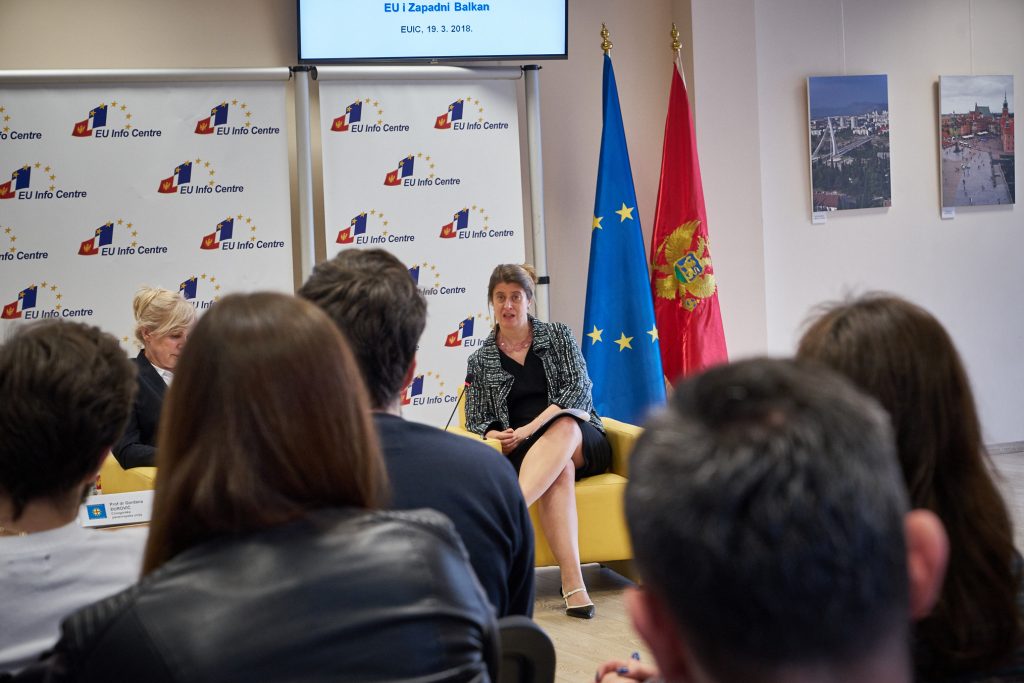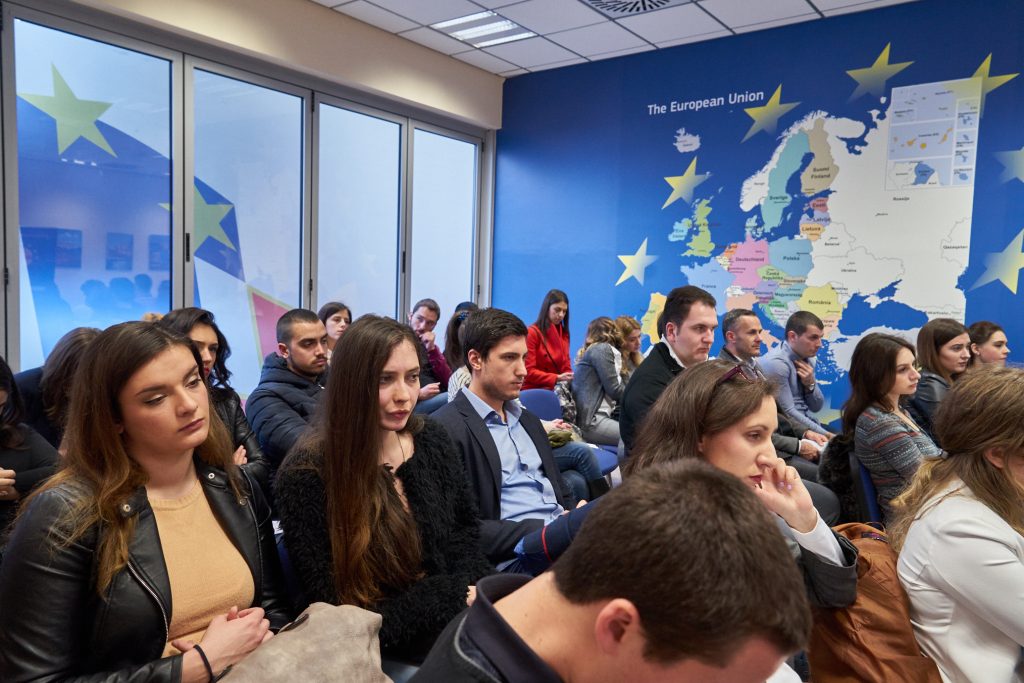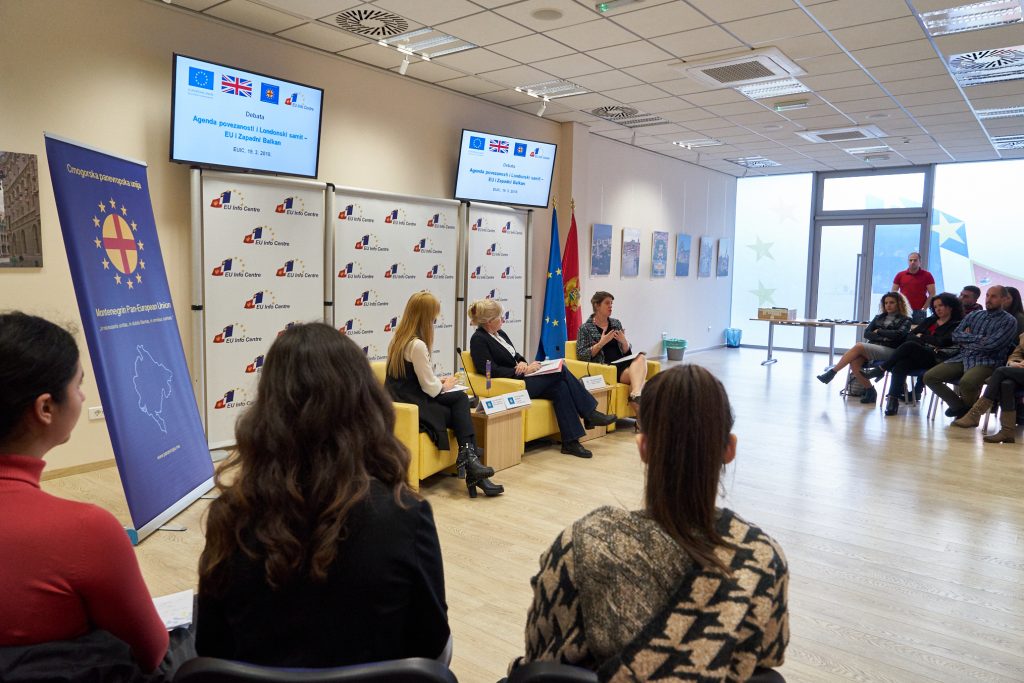Podgorica, 19 March 2018 – Relations between the United Kingdom and the Western Balkans, the Connectivity Agenda and the summit between the Western Balkans countries and the EU in London are just some of the issues that the Ambassador of the United Kingdom in Montenegro, Alison Kemp, talked about with students at a panel discussion in the EU Info Centre.

The Berlin Process is a diplomatic initiative linked to the future enlargement of the European Union. It is planned to be held annually during the period 2014–2018. After Berlin, Paris and Vienna, the next summit of the Western Balkans and the European Union will take place this year in London. For Kemp, the Berlin Process is proving to be successful.
“The real question is why the summit is being held in London (when Britain is leaving the European Union). Although we are leaving the EU, our role in the region is staying the same. And that is why the UK is hosting the summit. Great Britain’s commitment to the region is long-term and will continue to be after our exit from the European Union,” says Kemp.
Kemp explained that the stability and security of the Western Balkan countries is important to the UK, and said that the UK wants to dedicate the upcoming summit to strengthening the focus on stability and security. The United Kingdom’s commitment is also visible through increasing the allocation of funding for the region on a bilateral level. At this moment, that figure is £27 million a year.
“In 2018, a year before we leave the European Union, our bilateral allocation for the region will increase from £27 to £40 million,” explained Kemp.

Kemp sees the digital sector as an important area of action for the UK in the region. In Montenegro, the British Embassy is conducting the “Digital Cities” project in the cities of Podgorica, Bar and Niksic.
“This year, we started, together with the British Council, a project to support the digital sector. We have a new programme, “21st Century Skills”, that should help young people in the region to develop critical skills, solve problems and programing. This pilot programme is being implemented in 10 Montenegrin schools,” said Kemp.
Kemp also emphasised the importance of the role of the media in the countries of the Western Balkans.
“The media plays a very important role both in Montenegro and in the rest of the region. The United Kingdom is concerned about the politicisation of the media and the pressure on media freedom. We will continue to talk about the importance and responsibility of the media, as well as to express our concern about violence against journalists and against media pluralism,” said Kemp.

The students asked the ambassador why the UK is supporting the countries of the Western Balkans to join the European Union when that country is the only country to leave the EU.
“The United Kingdom wants a stable and prosperous region. Accessing the European Union is the right thing for Montenegro to empower your society and the economy,” said Ambassador Kemp.
This is the fourth in a series of talks on the subject of EU integration with diplomatic representatives of European countries organised by the Youth of the Montenegrin Pan-European Union and the EU Info Centre.
